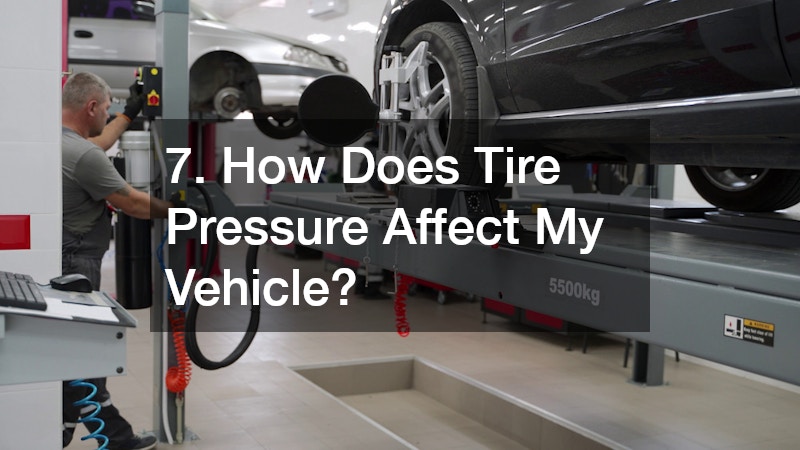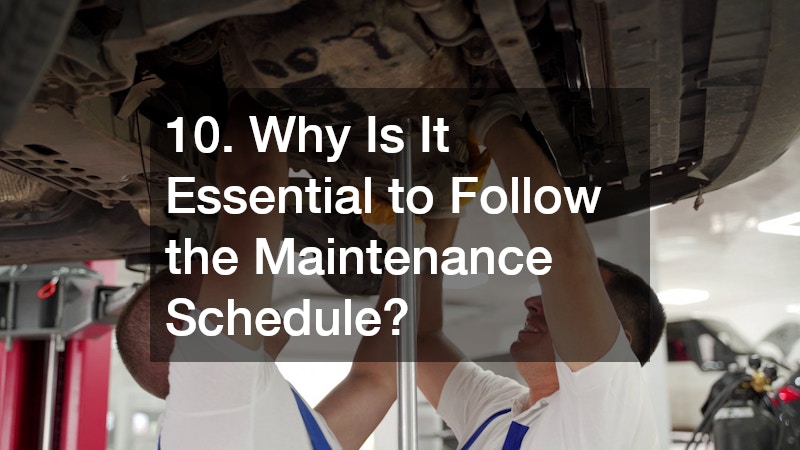10 Vehicle Maintenance Facts That New Car Owners Should Know

As a new car owner, understanding the basic principles of vehicle maintenance is crucial to ensuring the longevity and reliability of your vehicle. Regular maintenance not only helps in preventing costly repairs but also safeguards your investment by keeping your car in optimal condition. This comprehensive guide aims to cover ten critical maintenance facts that will empower you to take a proactive approach towards your vehicle’s health. By incorporating these tips into your car care regimen, you can enjoy the peace of mind that comes with driving a safe and efficient vehicle. The importance of these maintenance practices cannot be overstated, as they contribute to the overall value and performance of your car. With the plethora of information available, it can be challenging to discern which aspects of vehicle care deserve your attention. This article breaks down the essential points into digestible sections, each focusing on a specific component of your vehicle’s upkeep. Whether you’re concerned about auto repair, interested in auto upgrades, or simply wish to avoid the distress of auto accident injury, this guide covers all the bases. By the end of this article, you’ll be well-equipped with the knowledge to maintain your vehicle effectively, from understanding the significance of car ceramic coating to knowing the recycling processes for junk car recycling.
1. How Often Should I Change My Oil?

The frequency of oil changes is a topic of great debate, but understanding your vehicle’s specific needs is essential. Conventional wisdom suggests changing your oil every 3,000 miles, but advancements in engine technology and oil quality mean that many vehicles can now go 5,000 to 7,500 miles between changes. Always consult your owner’s manual for the manufacturer’s recommended intervals to ensure optimal engine performance.
Regular oil changes are critical for prolonging your engine’s lifespan, significantly impacting the vehicle’s overall health. Oil lubricates, cleans, and cools vital engine components, preventing wear and tear. Consistently changing your oil can avert potential auto repair nightmares, saving you time and money in the long run.
Neglecting timely oil changes can lead to a host of issues, including reduced fuel efficiency and engine performance decline. Dirty or depleted oil fails to adequately lubricate engine parts, causing increased friction and potential engine damage. By adhering to suggested oil change intervals, you enhance your vehicle’s reliability and driving experience.
2. When to Rotate and Balance Tires?
Tire rotation is a crucial aspect of vehicle care, helping your tires wear evenly and extending their lifespan. Most automakers recommend rotating tires every 5,000 to 8,000 miles. By periodically changing the position of each tire, you promote uniform wear, leading to better handling and increased safety.
Balancing your tires is equally important as rotation, ensuring that the weight distribution across all tires is even. This process involves adding small weights to the tire to counterbalance heavy spots. Properly balanced tires prevent uneven tread wear and reduce the risk of vibrations while driving.
Both tire rotation and balancing are part of essential auto upgrades that can enhance your ride. These processes optimize traction, improve fuel efficiency, and extend the life of your tires. Taking the time to care for your tires can prevent the need for premature replacements and contribute to a smoother, more comfortable driving experience.
3. What is the Importance of Regular Brake Checks?
Brakes are one of the most critical safety features of any vehicle, and regular checks are imperative for ensuring their effectiveness. Worn-out brake pads can significantly increase stopping distances and escalation in risk of an auto accident injury. It’s recommended to check your brakes at least twice a year or whenever you notice warning signs such as squealing noises or a spongy brake pedal.
During a brake inspection, a technician will evaluate the condition of various components, including pads, rotors, and calipers. Early detection of issues can prevent more serious problems and costly repairs down the line. Consistent brake maintenance is a fundamental element of your car service routine, enhancing safety and maintaining overall vehicle performance.
Investing in quality brake components and staying vigilant about their condition goes a long way in securing a safe driving experience. Prioritize regular brake checks just as you would any top-notch auto repair service, and avoid the dangers associated with compromised braking ability. Your brakes are a non-negotiable aspect of your vehicle’s safety measures, so never skimp on their upkeep.
4. How to Maintain Battery Health?

A vehicle’s battery is its lifeline, providing the necessary power to start the engine and operate electrical components. To maintain battery health, regularly inspect its condition and clean any corrosion on the terminals. Testing the battery’s voltage with a multimeter can help you gauge its health and determine if a replacement is necessary.
Ensuring your battery is adequately charged prevents unexpected breakdowns and the need for emergency calls to car towing companies. A weak or failing battery can leave you stranded and in need of a costly tow, highlighting the importance of routine battery checks. By maintaining battery health, you ensure reliability and reduce the risk of unexpected inconveniences.
Applying car ceramic coating to battery terminals can also aid in preventing corrosion, which is a common battery nemesis. Furthermore, keeping an eye on your vehicle’s charging system performance can alert you to any potential issues. Regular battery maintenance ensures you’re not left out in the cold with a dead vehicle.
5. What Should I Know About Engine Coolant?
Engine coolant, also known as antifreeze, plays a vital role in maintaining your vehicle’s temperature. It circulates through the engine, absorbing excess heat and preventing overheating. Regularly checking your coolant levels and ensuring the right mixture can significantly impact engine performance and longevity.
It’s essential to understand the specific coolant requirements for your vehicle, as using the wrong type can lead to costly repairs. Most manufacturers suggest flushing the cooling system every 30,000 miles or so. Consistency in coolant maintenance is key to avoiding engine overheating and subsequent auto repairs.
The practice of junk car recycling often deals with vehicles that did not receive adequate engine maintenance, leading to irreversible damage. Implementing proactive cooling system care can prevent your vehicle from becoming a candidate for recycling prematurely. By staying vigilant about your coolant levels, you secure your vehicle’s operational efficiency and sustainability.
6. When Should I Replace My Wiper Blades?
Wiper blades are often overlooked but play an essential role in driving safety, especially in adverse weather. It’s advisable to replace wiper blades every six months or when they leave streaks on your windshield. Properly functioning wiper blades ensure clear visibility, minimizing the risk of car hail damages and other weather-related issues.
Checking your wipers regularly should be part of your routine car service, particularly before long road trips or during seasonal changes. Exposure to varied weather conditions over time can deteriorate rubber, reducing its effectiveness. By replacing your wiper blades proactively, you ensure consistent performance and maintain road safety.
High-quality wiper blades are a worthy investment, enhancing your safety measures while on the road. Poor visibility in harsh weather can lead to lapses in judgment, increasing the likelihood of accidents. Regularly replacing wiper blades is a straightforward yet crucial component of vehicle upkeep that shouldn’t be neglected.
7. How Does Tire Pressure Affect My Vehicle?

Maintaining proper tire pressure is essential for optimal vehicle control and efficiency. Under-inflated tires can lead to increased rolling resistance, causing higher fuel consumption and premature wear. Checking tire pressure at least once a month can save money on fuel and reduce tire replacements.
Proper tire pressure contributes to smoother rides and lessens the risk of tire blowouts, which may require assistance from car towing companies. Over-inflated tires can also be problematic, leading to reduced traction and uneven wear patterns. By investing in a reliable tire gauge and routinely monitoring air pressure, you maintain vehicle safety and performance.
Additionally, fluctuating outdoor temperatures can significantly impact tire pressure, requiring more frequent checks during drastic temperature changes. Keeping consistent tire pressure is an effortless yet highly effective method to avoid undue stress on your vehicle’s suspension system. An ounce of prevention is worth a pound of cure when it comes to tire maintenance.
8. What Fluid Levels Should I Regularly Check?
Regular checks of critical fluid levels in your vehicle, such as engine oil, coolant, and brake fluid, are essential for peak performance. Neglecting fluid maintenance can result in decreased efficiency and potential damage, notably affecting your vehicle’s longevity. Make it a monthly habit to inspect these levels and top them off as necessary.
Keeping an eye on transmission fluid levels is also vital, as low or dirty fluid can compromise shifting performance and lead to significant transmission wear. Regular checks and services can prevent costly repairs, ensuring that your vehicle’s handling remains smooth and responsive. Ignoring these simple checks might lead to severe damage like car hail damages, which can escalate into more complex repairs.
By maintaining appropriate fluid levels, you guard against mechanical failures that require immediate auto repair. A well-maintained fluid system is integral to the seamless functioning of your vehicle’s many components. Incorporating fluid level checks into your car service routine is a beneficial practice that stands between effortless operation and potential disaster.
9. How Important is Regular Transmission Maintenance?
Transmission maintenance is critical to the smooth operation of your vehicle, ensuring that power is effectively delivered from the engine to the wheels. Over time, transmission fluid can become contaminated, necessitating periodic replacement to protect this vital component. Many manufacturers suggest a transmission service every 30,000 to 60,000 miles, depending on the vehicle type.
Regular transmission checks and services can prevent failures that might leave you reliant on local towing services for assistance. Early detection and intervention in transmission concerns can result in significant cost savings and reduced downtime. Prioritizing consistent transmission maintenance is an investment in your vehicle’s long-term health and efficiency.
The thought of needing enclosed trailers for transporting a non-functional vehicle is every car owner’s nightmare. An effective transmission care routine helps you steer clear of such logistical headaches. A well-maintained transmission not only improves driving satisfaction but also ensures you can navigate the roads with confidence.
10. Why Is It Essential to Follow the Maintenance Schedule?

Adhering to your vehicle’s maintenance schedule is paramount for its optimal performance and reliability. These schedules are designed with precision to align with the wear patterns and life cycles of vital components. Regular adherence may avert extensive repairs, saving you from the inevitable consequences of neglect.
Following the manufacturer’s recommendations helps retain your vehicle’s value, a crucial factor if you ever decide to sell or trade it in. By keeping thorough records of completed services, you build a compelling case for your car’s upkeep, which attracts potential buyers. Maintenance scheduling should never be seen as optional; it’s the blueprint for vehicular preservation.
In essence, your vehicle’s maintenance guide is the map that navigates around potential issues and auto accident injuries. Comprehensively adhering to these guidelines extends the lifespan of your vehicle while enriching your driving experience. Regularly consulting and complying with the maintenance schedule ensures both peace of mind and optimal vehicle operation.
Incorporate These Tips
Understanding and implementing these ten vehicle maintenance tips can greatly enhance your new car ownership experience. Regular attention to these tasks ensures the safety, functionality, and longevity of your vehicle, making your investment more rewarding. From the frequency of oil changes to the intricacies of transmission maintenance, each component plays a pivotal role in the seamless operation of your car.
Equipped with this knowledge, you can proactively prevent issues that often lead to costly repairs and unnecessary complications. Whether it involves staying alert about fluid levels, prioritizing brake checks, or maintaining tire pressure, these practices form the bedrock of effective vehicle care. To fully capitalize on your vehicle’s capabilities, embrace these guidelines as part of your regular auto upgrades.
Ultimately, your commitment to vehicle maintenance significantly impacts your driving safety and enjoyment. By treating your car with the care it deserves, you not only extend its lifespan but also enhance its performance on every journey. Remember, diligent maintenance is the key to unlocking the full potential of your vehicle, allowing you to appreciate its benefits for years to come.
